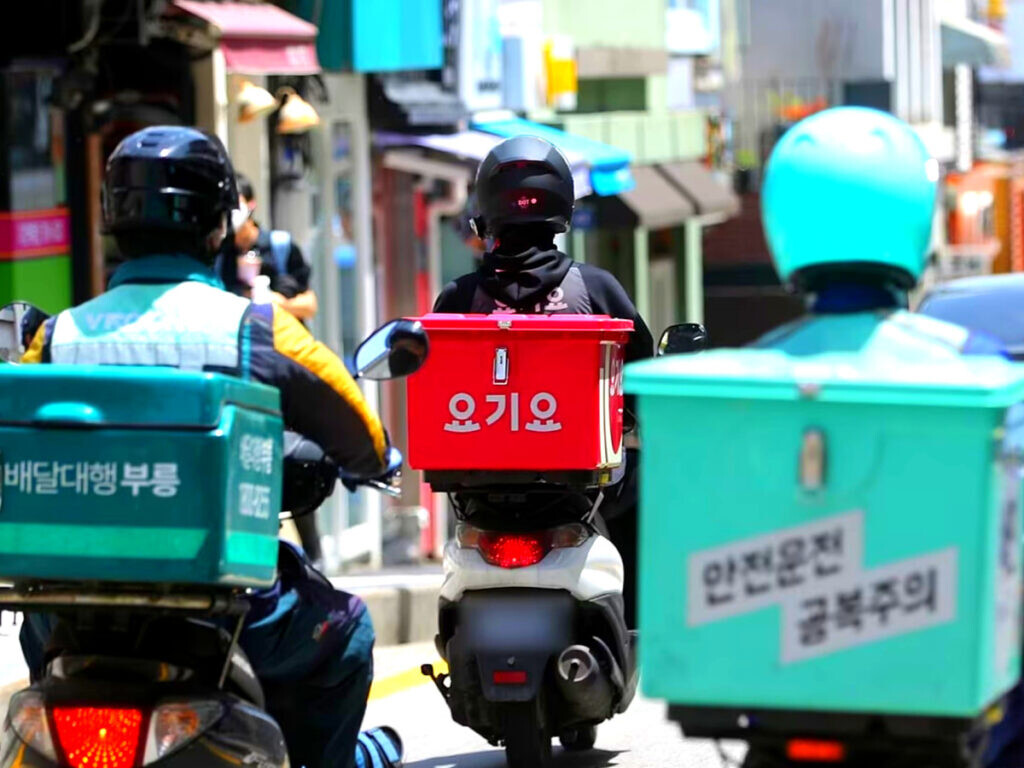
"The act of observing changes the object being observed." This quote by quantum mechanics giant Heisenberg applies particularly sharply to digital-era platform companies. While disguised as innovation, various illicit practices are rampant, subtly evading labor law regulations. When the government introduces regulations, platforms become even more cunning, finding loopholes in the legal framework at the speed of light to circumvent them.
Subscription Fees: A New Weapon to Evade Commission Regulations
In Indonesia, with a population of 280 million, two-wheeled ride-sharing apps are a primary mode of transportation, and 3 to 4 million app drivers work for platforms like Gojek and Grab. As criticism mounted over excessive platform commissions, the Indonesian government, through Ministry of Transportation Decree KP 667 in 2022, capped commissions at 20%. This included a maximum of 15% for brokerage fees plus 5% for driver welfare, not to exceed a total of 20%.
However, platforms immediately introduced the illicit method of "subscription fees." Grab launched its "Hemat" service, allowing app drivers to pay a daily subscription fee of 3,000 to 20,000 Rupiah to receive priority for low-cost orders. In Indonesia, where major cities suffer from severe traffic congestion, short-distance, low-cost orders are preferred by drivers due to easier travel time prediction and fuel cost savings. If drivers don't pay the subscription fee, the number of calls drops sharply, making it virtually mandatory. Gojek's "Aceng" program, while nominally free, fixes drivers' income at 5,000 Rupiah, allowing the platform to take most of the profit regardless of the actual call fare. This results in platforms effectively taking up to 75-80% of the revenue while nominally adhering to the 20% commission rate.
Subcontracting: A Shield to Evade Employer Responsibility
In Spain, which was the first country in the world to enact a "Rider Law," delivery riders are considered "employees" directly hired by the platform, ensuring minimum wage and basic labor rights. Deliveroo withdrew from Spain in protest of this law, while UberEats and JustEat began directly employing riders. However, Glovo violated the law by hiring riders as freelancers, eventually facing massive fines and a court order to directly employ thousands of riders.
Glovo's countermove was subcontracting. Glovo inserted a dedicated subcontractor called a "fleet" between the delivery platform and the riders. While Glovo platform is the de facto controller, formal employment is offloaded to the fleet, thereby evading employer responsibility. Fleets only handle human resources and labor management, such as insurance, taxes, and attendance, while core powers like actual call assignment methods and control over operating hours are still exercised by Glovo. A similar phenomenon appeared in Malta. When a system presuming delivery riders as "employees" was introduced under the EU's "Platform Work Directive," platforms like Uber, Bolt, and eCabs inserted these "fleets" as subcontractors to avoid directly employing drivers. Fleets and drivers split revenue 50:50, but operating costs like commissions, VAT, and vehicle maintenance are paid by the fleet. Ultimately, platforms avoid responsibility while consistently generating profit, and fleets, to maximize profit, pay drivers only the legal minimum wage and even encourage tax evasion through cash order revenue.
Algorithms: Complexity That Blinds Regulation
Uber, the world's leading ride-sharing app, recently introduced its "Trip Radar" algorithm, which displays multiple calls simultaneously instead of just one, and matches drivers through a click-based competition. Uber promotes this as offering drivers diverse choices and more call opportunities, but in reality, it causes excessive competition and increases accident risk. Trip Radar often displays call lists in an order that is favorable to the platform, meaning less cost-effective, rather than in order of higher fares. Since calls are grabbed on a first-click, first-served basis, app drivers are forced to take even the undesirable "crap calls" they normally avoid.
A more serious problem is that call lists appear on mobile phone screens even while driving, and drivers check them and compete to accept calls, which can lead to accidents. Uber drivers in some parts of the US and Europe call Trip Radar "call merry-go-round" or "whack-a-mole." If they repeatedly refuse low-value calls, they face penalties, such as being deprived of destination preview. DoorDash in the US also operates a program that prioritizes good calls based on delivery driver ratings and acceptance rates, effectively forcing acceptance of low-fare orders. This is tantamount to coercing acceptance of "crap calls" by dangling desirable assignments as bait.
Korean Platforms: The Completion of the "Regulation Evasion Triple Set"
The regulation evasion strategies through subscription fees, subcontracting, and algorithms, which originated overseas, are already being eagerly adopted by Korean platform companies. At the forefront are "giant platforms" like Baedal Minjok and Kakao Mobility. In particular, Baedal Minjok has recently fully introduced subcontractors under the names "Baemin Connect Biz" or "Baemin Plus." This is largely aimed at evading the platform's employer responsibility, similar to the cases in Spain and Malta.
However, Korea currently lacks strong regulations like the EU's Platform Work Directive. Nevertheless, Baedal Minjok's introduction of subcontractors is interpreted as a comprehensive strategy to circumvent all regulations, not just employment relationships or employer responsibility, including commission limits and algorithm verification. In other words, it has incorporated the "regulation evasion triple set" into its subcontractor model. Although Baemin Plus does not demand direct subscription fees, it is reportedly experimenting with various methods to charge riders.
Last month, discussions on a convention related to platform work began at the ILO General Conference, with key topics including platform companies' employer responsibility, appropriate wages and safety guarantees for platform workers, and strengthening the right to know about algorithms. This is similar to the content of the EU Platform Work Directive. However, platform capital has already created ways to circumvent these regulations. Regulations are moving at a snail's pace, while the speed at which platforms open bypasses is as fast as an arrow shot. This gap between "crawling regulations" and "flying platforms" will remain a major challenge for the platform labor environment in the future.
[Copyright (c) Global Economic Times. All Rights Reserved.]






























